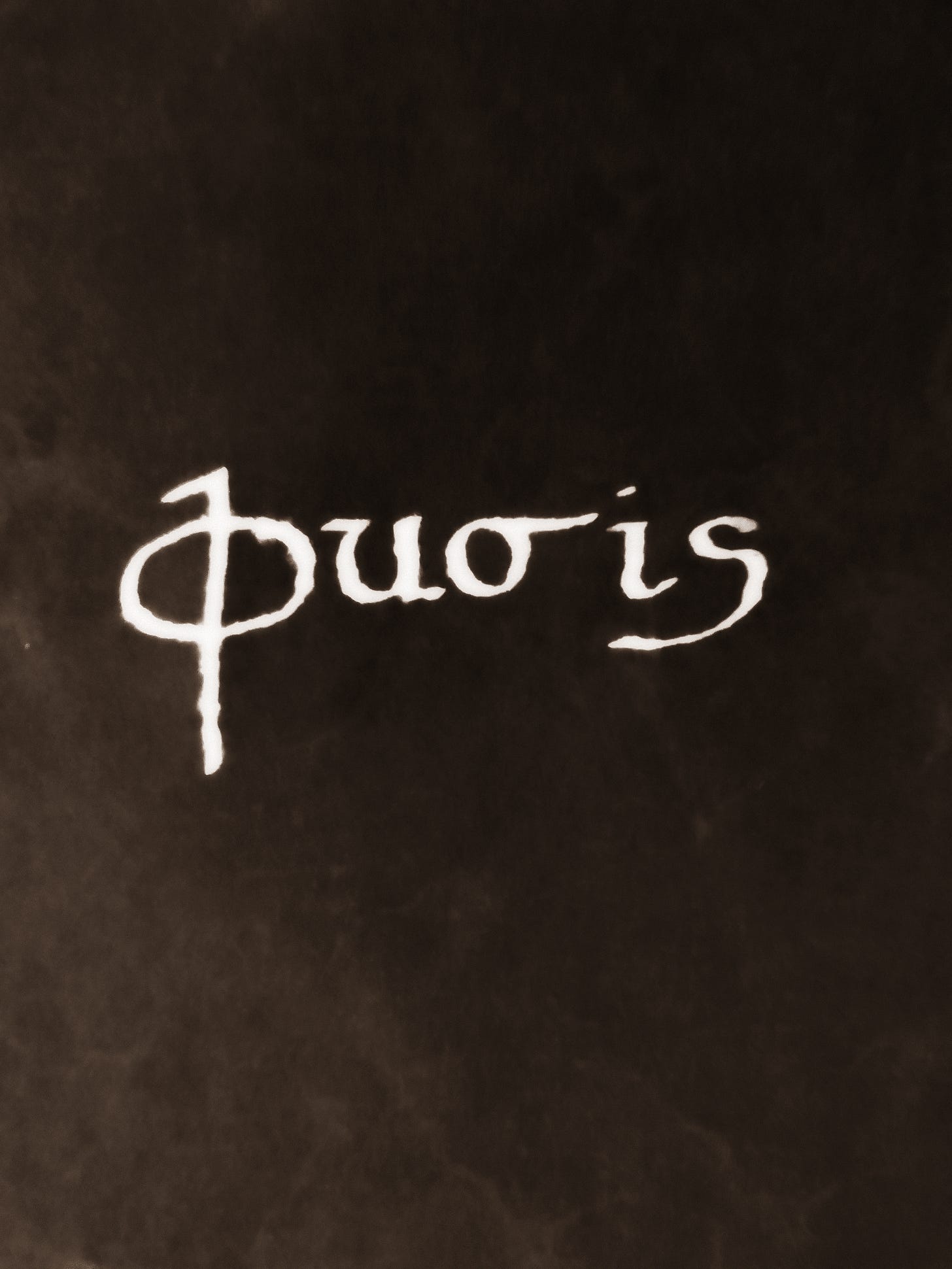Open Being
“All the natural sciences succumb to the unavoidable disadvantage that they apprehend nature exclusively from the objective side, unconcerned about the subjective. But it is in the latter that the main thing necessarily lies; it devolves upon philosophy” 1
Martin Heidegger insists that this search for certainty or firmness of ground which characterises modern science, but which in like manner, demands certainty on the question of ‘Being’, began with Descartes who doubted everything until he arrived at the ego and could doubt no more. Descartes was working in the philosophical landscape inherited from the scholastics. It is with the scholastics that the terms “subject” and “object” come into force. Heidegger for his part, reminds us that for the ancient Greeks, these terms did not exist, and that the translation of the original language of Greek philosophy into Latin, and thence it’s pressing into the service of the imperial religion was anything but ‘an arbitrary and innocuous process’.2
Plato, but Aristotle particularly was so remodelled in that translation that “... the philosophy of Aristotle as an expression of Greek thought in it’s originary directness remains closed to us, is owed to the fact that the philosophy of Aristotle, by way of Jewish-Arab thought in the Middle Ages, was transformed by ecclesiastical theology into an entity that has only the words in common with the Greek Aristotle, and even these are translated into the language of Latin”3
Latin was of course the language of empire, conquest, domination, and antipathy to uncertainty. It is no wonder therefore that the obsession for absolute firmness of ground, for complete surety and certainty became the stuff with which Descartes had to work. To his credit, he successfully (at no small risk to himself) undercut the elaborate constructions of the scholastics who had built these with the terms of reinterpreted Aristotelianism and often merely juggled them about as so many fictional characters and plots.
Being for the ancient Greeks was Phusis. We get our term physics among many others from this Phusis. Phusis means blooming, coming into presence, emerging, as in what emerges in and as the world of experience (which for the Greeks included the gods, and all that we might denote as super-physical). Phusis was everything, and the way everything was. But there were other words that no less denoted Being; logos, eidos, ousia, energia, on. These all referred to what Phusis referred to; Being.
“Things” were ta phusika (which was later taken to mean natural things as opposed to human fabrications). Phusis was not just the totality of these things, but the way of things, the nature of things. Knowledge about phusis was meta-phusis, metaphysics.
In one his later works (actually a series of notes from seminars he conducted in France) Heidegger sums up the contrast of approach between the ancient Greeks and Descartes (hence modern philosophy, including Schopenhauer who more than anyone I think managed to return a vital holism to western philosophy which had been lost even before the Middle Ages)
“The thinking of Descartes. Hegel says that with him, thinking reaches “terra firma” for the first time. What Descartes undertakes is actually to determine ground by firmness – therefore , to no longer let a ground be as it is from itself.....The Greeks are those human beings who lived immediately in the openness of phenomena – through the expressly ek-static capacity of letting the phenomena speak to them (modern man, Cartesian man, se solum alloquendo, only talks to himself).”4
On the other hand, Schopenhauer did indeed go beyond the Cartesian man and his self-rapport. In seeing that the intellect itself, and hence the ego, is merely a phenomenon, and that the inner being of the subject is identical with that of all objects, and the world, that is, with all phenomena, he allowed for phenomena to be as such, and to speak again to us in an intimacy that had been ripped apart – certainly since the above-mentioned “mutilation” (actually, militarisation) of Greek philosophy in the Roman empire and it’s ecclesiastical successors.
“we are far more at one with the world than we usually think; it’s inner nature is our will, and it’s phenomenal appearance our representation”5
Schopenhauer’s certainty is not a dry and dead formulaic maxim. It is on the contrary, a mahavakya, a spiritual phrase unconcealing the aspect of being appropriate to humans. It announces a connection without fixing a clamp. It opens Being and our relationship to the world as a living tissue, rather than shuts it down and fills it’s lanes and passages with cement.
Arthur Schopenhauer, “Parerga and Paralipomena” volume 2
Martin Heidegger, “Introduction to Metaphysics”
Martin Heidegger, “Heraclitus”
Martin Heidegger, “Four Seminars”
Arthur Schopenhauer, “On the Suffering of the World”





Excellent.